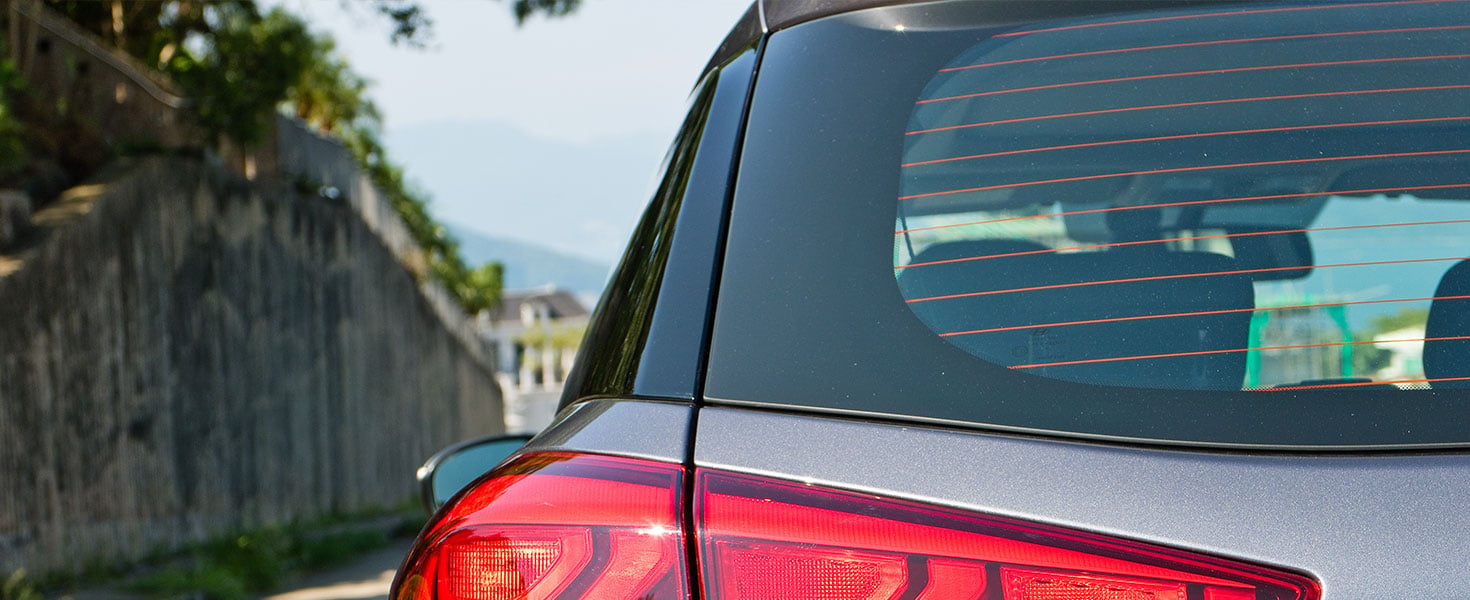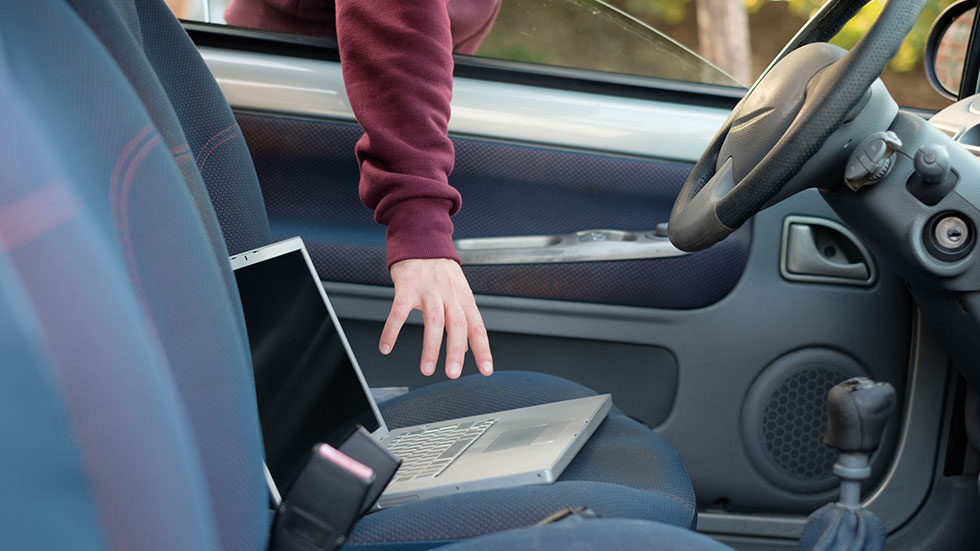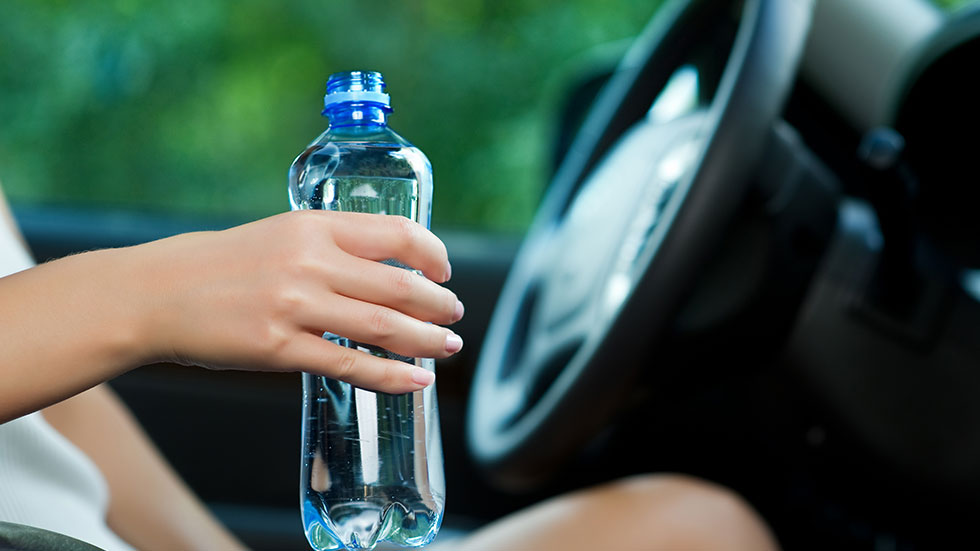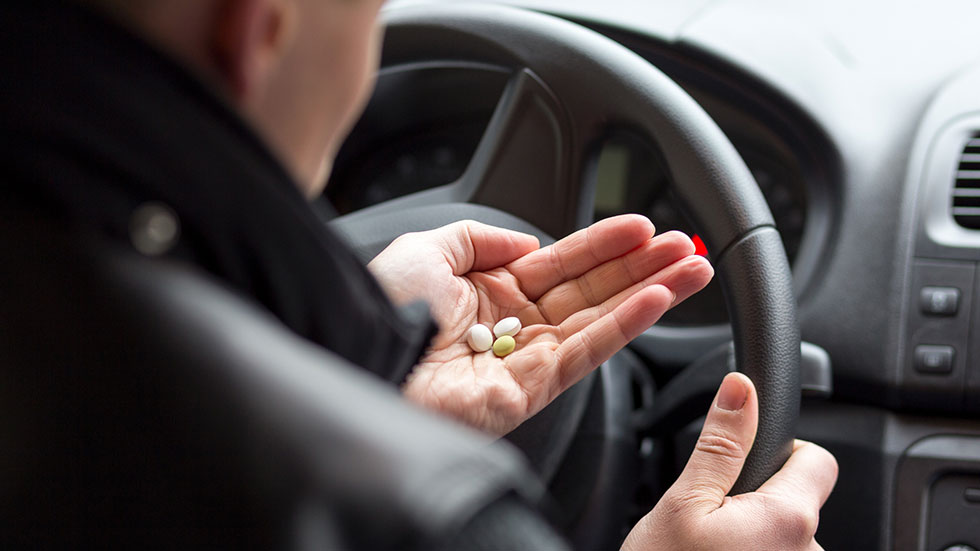8 Things You Should Never Leave in Your Vehicle
Avoid car theft and hazards by always removing your loved ones, bottled water, batteries, spray paint, and more


There are some people who keep the inside of their car clean, tidy, and organized, and there are others who seem to have a little bit of everything within reach of the driver’s seat. No matter which category of vehicle owner you fall into, you should know there are a few things you should never leave in your vehicle.
Whether the reason is safety, stench, or something else, here’s a list of eight things you should never leave in your car, and reasons why.

Children. This may seem obvious but is still worth noting. When temperatures outside climb, so does the temperature inside of a vehicle. It’s been found that when it’s 80 degrees outside, the internal temperature of the car can reach 150 degrees or more. This can be dangerous, even deadly, to babies and children.

Pets. Leaving Fido in the car while you make a quick stop, even after cracking the windows, can be deadly for the animal. The inside of cars can reach over 100 degrees very quickly, especially when parked in the sun. Without a way to cool themselves down or escape the heat, you could be risking their life.

Valuables and personal belongings. This can include a phone, wallet, purse, important documents, jewelry, expensive clothes, and other valuables. The most obvious reason is that visible valuables can be tempting for a thief.

Bottled water. When left for long periods of time, a typical plastic bottle can contaminate the water inside with BPA, which is the substance used to manufacture water bottles. This could be a potential health risk, so it’s best to bring a new bottle with you on each trip.

Medication. Most medications need to be kept at room temperature, so leaving them in a hot or cold vehicle can alter the medication and make it ineffective. Additionally, hot and cold temperatures can cause moisture, which can also negatively affect the drugs. It likely won’t make them unsafe, but they may no longer work as expected.
Aerosol cans. This can include air fresheners, deodorants, hair spray, spray paint, etc. When heated to a high enough temperature, aerosol cans are likely to expand and explode, destroying your vehicle’s interior and potentially, the exterior.
Electronics. Phones, laptops, tablets, and other electronics that run on batteries can overheat in a hot vehicle, which can affect or damage the overall battery life of the device, and potentially even damage the device itself. Also, visible electronics are attractive to thieves.
Sunscreen. Even though it protects you from the sun, prolonged exposure to heat can break down the ingredients in sunscreen, making it ineffective. Depending on the type of container the sunscreen is in, it could also explode.
